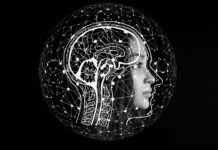The brain is the most complex organ of the human body. It requires more than 20% of the oxygen even though it is no bigger than the size of two fists put together. It is able to form new connections every time a new memory is made, but it also eliminates unnecessary information to maintain its plasticity.
Being the most complex organ also means that, even after decades of exploration, the human brain still remains the most mysterious piece of the human body machinery. The division in different brain regions allowed scientists to understand which areas are responsible for controlling the physical and mental processes that make us intelligent animals, but there is still a long road ahead in understanding which genes influence which specific brain areas.
Gene Map
Allan Jones, from the Allen Institute for Brain Science, set up to discover which genes are turned on and off in specific regions of the brains. Using normal human brains as studying models, he and his team were able to measure and map uncountable samples of the brain. The result is a collection of more than 50 million data sets of genes, freely available to scientists who are interested in understanding what makes unique human beings.
Source: Ted Talks – Allan Jones: A map of the brain




